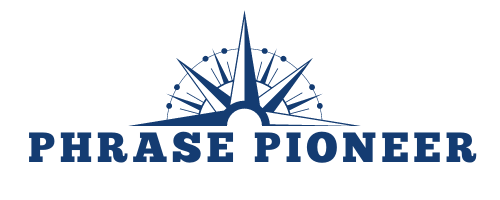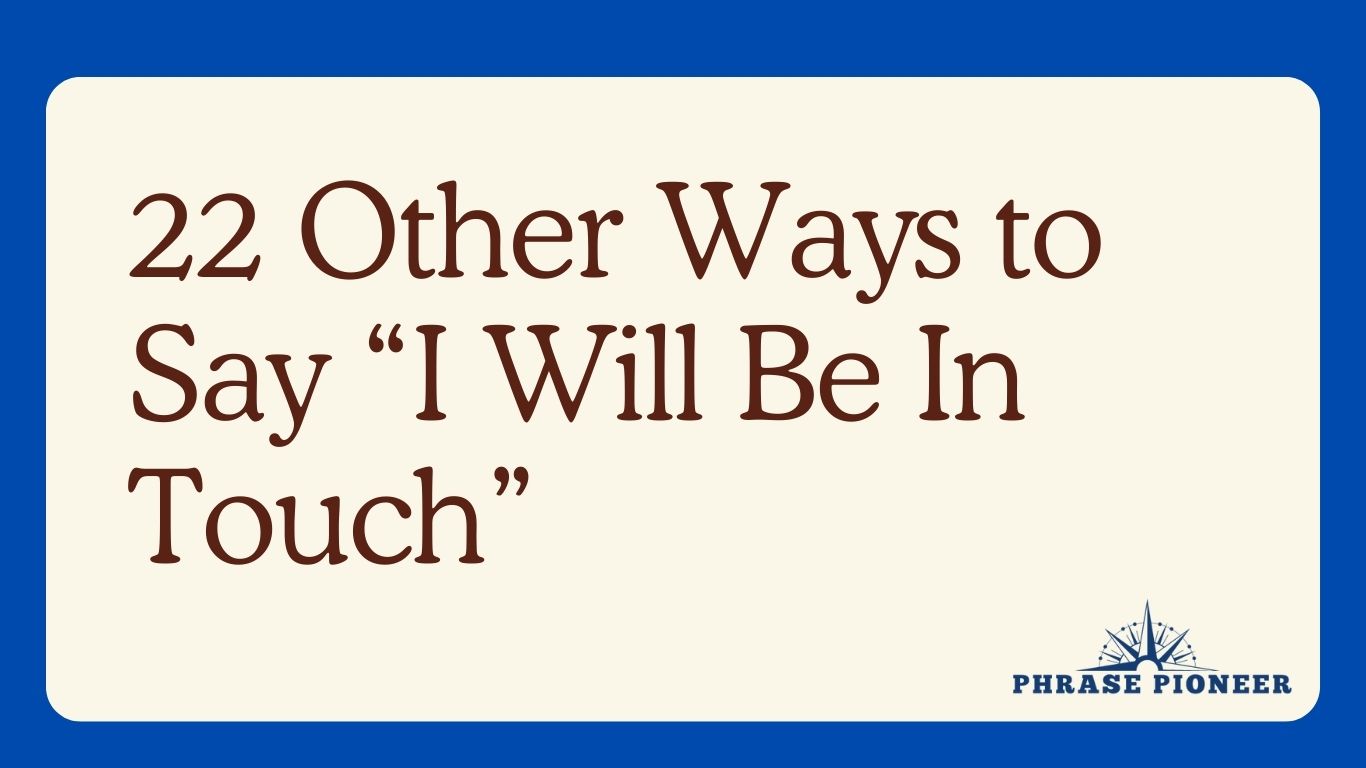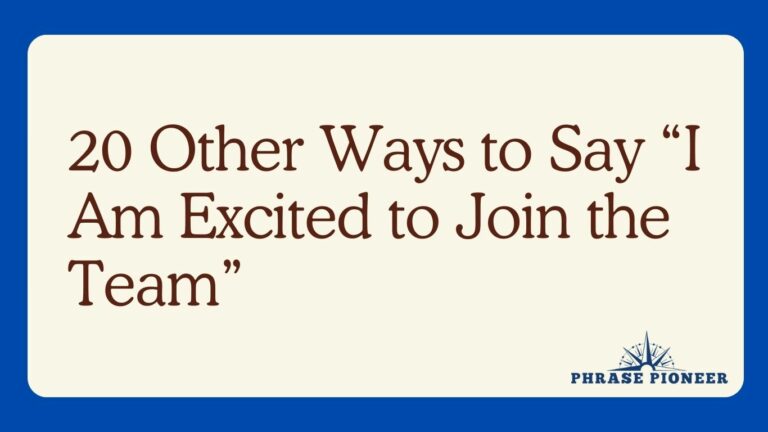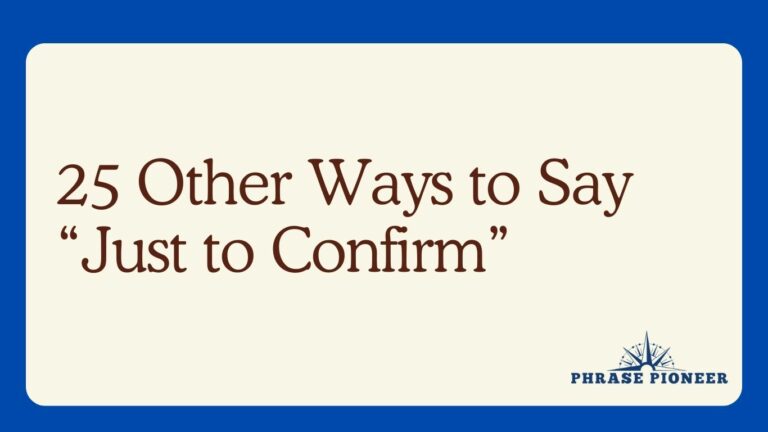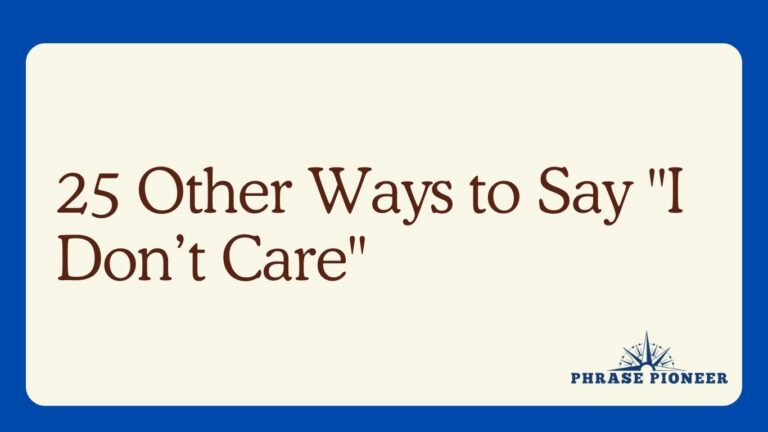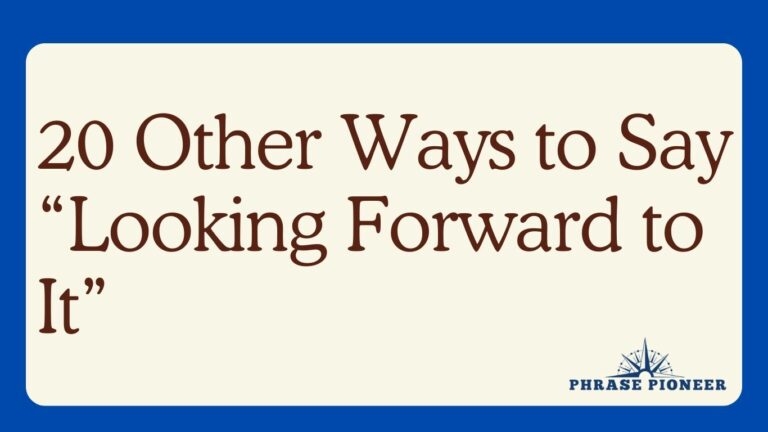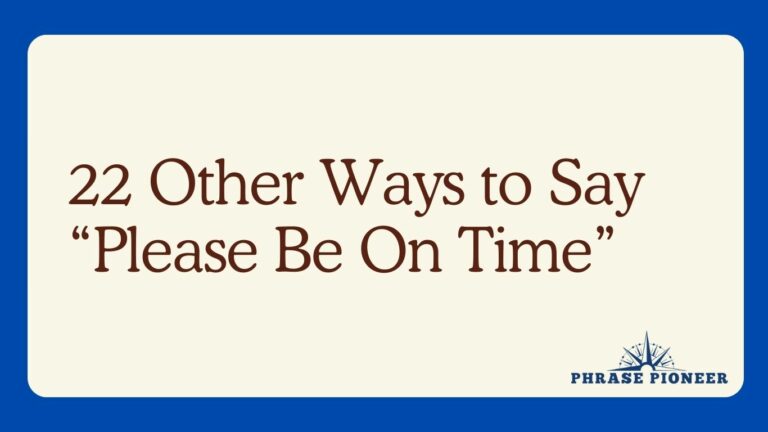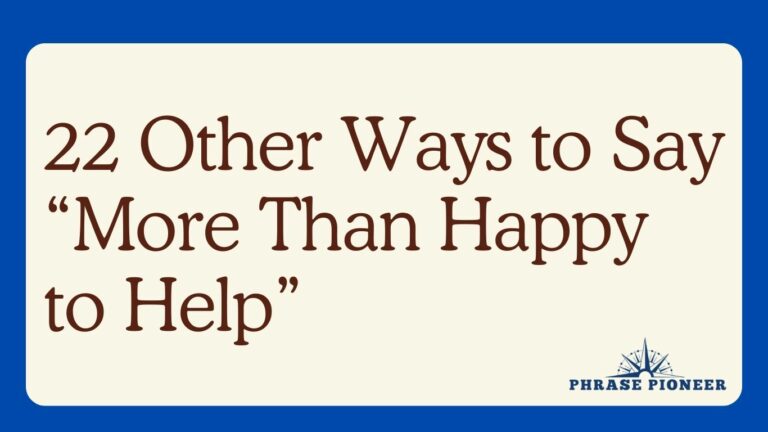22 Other Ways to Say “I Will Be In Touch”
Keeping the lines of communication open is a vital part of both personal and professional relationships. Whether you’ve finished a meeting, a job interview, or just a catch-up with an old friend, expressing your intention to continue the conversation later can be crucial.
Here are 22 different ways to convey the message “I will be in touch,” each suitable for various shades of commitment and circumstances.
Casual Promises of Contact
1. Catch you later
- Example: “Great to see you at the game! Catch you later.”
- Explanation: A casual and informal way to indicate that you plan to communicate or meet at a later time, without specifying when.
2. Talk to you soon
- Example: “Thanks for the update, talk to you soon.”
- Explanation: A friendly and commonly used expression that implies you expect to converse again in the near future.
Professional Intentions to Reconvene
3. Let’s circle back on this
- Example: “We’ve covered a lot today. Let’s circle back on this next week.”
- Explanation: A business term that suggests revisiting the topic after some time or development has passed.
4. I’ll follow up with you
- Example: “Once I have more information, I’ll follow up with you.”
- Explanation: Signifies a more formal commitment to continue the conversation with additional information or action.
Amicable Declarations of Ongoing Dialogue
5. We’ll talk again
- Example: “This has been productive. We’ll talk again once I’ve reviewed the documents.”
- Explanation: A definitive way to say that the conversation will be continued once certain conditions are met.
6. Expect my call
- Example: “It’s been a pleasure discussing this with you, expect my call in a few days.”
- Explanation: Used when you want to assure the person that you will indeed initiate the next contact.
Personal Commitments to Reach Out
7. I’ll reach out soon
- Example: “Your project pitch was interesting; I’ll reach out soon to discuss the details.”
- Explanation: Indicates that you will take the initiative to make contact in the near future.
8. I won’t be a stranger
- Example: “I’m glad we reconnected after all these years, and I won’t be a stranger.”
- Explanation: A warm way of saying you intend to stay in touch more consistently after a period of not communicating.
Professional Follow-Up Phrases
9. I’ll get back to you
- Example: “Your concerns are important. I’ll get back to you with a solution by tomorrow.”
- Explanation: Implies that after taking some action or getting certain information, you’ll initiate the next contact.
10. I’ll send you an update
- Example: “As soon as there’s any progress, I’ll send you an update.”
- Explanation: Often used in work contexts, it means you’ll provide new information when it becomes available.
Promises to Initiate Future Dialogue
11. I’ll make a point of staying connected
- Example: “Your insights are valuable, and I’ll make a point of staying connected.”
- Explanation: Conveys a deliberate intention to keep in communication, highlighting its importance to you.
12. I’ll keep you posted
- Example: “Once I hear back from the team, I’ll keep you posted.”
- Explanation: A colloquial way to assure ongoing updates or communication.
Gentle Assurances of Continued Contact
13. You’ll be hearing from me
- Example: “Your application was impressive—you’ll be hearing from me regarding the next steps.”
- Explanation: Indicates with some level of formality that you will contact the person in due course.
14. I’ll keep in touch
- Example: “Moving to a new city won’t change anything. I’ll keep in touch.”
- Explanation: Conveys a personal commitment to maintain communication despite changing circumstances.
Professional and Network-Friendly Gestures
15. Let’s keep the conversation going
- Example: “These ideas are just the beginning. Let’s keep the conversation going over email.”
- Explanation: Expresses an enthusiasm for continued dialogue in a collaborative or brainstorming context.
16. We’ll continue this discussion
- Example: “We’ll continue this discussion when we reconvene at the next meeting.”
- Explanation: Typically used in meetings to indicate an ongoing project or topic that will be addressed later.
Indications of Future Contact
17. I’ll be in contact
- Example: “Thank you for your patience while we sort this out. I’ll be in contact shortly.”
- Explanation: A formal way to say that you’ll initiate future communication relatively soon.
18. I’m looking forward to our next conversation
- Example: “Our strategies align well, I’m looking forward to our next conversation.”
- Explanation: Indicates not only the intention to talk again but also eagerness and positive anticipation about it.
Informal Promises to Reconnect
19. Hit you up later
- Example: “I gotta run, but I’ll hit you up later to finish planning our trip.”
- Explanation: A very informal and modern phrase suggesting that you will reach out to them, typically using digital communication.
20. Stay tuned
- Example: “We’re still finalizing the details, so stay tuned for more information.”
- Explanation: This phrase comes from the broadcasting world and implies that you want the audience (or person) to pay attention for upcoming communications.
Warm, Friendly Affirmations
21. Until next time
- Example: “It’s been great catching up, until next time.”
- Explanation: A friendly and somewhat formal way to end a meeting that infers you expect there will be a future interaction.
22. More to come
- Example: “This is a good start to the project, and there’s more to come. I’ll schedule our next session soon.”
- Explanation: Spoken with assurance, it suggests that the current interaction is only part of an ongoing process or conversation.
These phrases can help ensure your intent to remain engaged is clear, and they can be tailored based on the nature of your relationship with the recipient, the context of your conversations, and the formality of your communications. Whether you’re handling a professional collaboration, touching base with colleagues, nurturing a friendship, or building new connections, conveying your intention to follow up can establish trust and show your reliability and interest in the dialogue.
